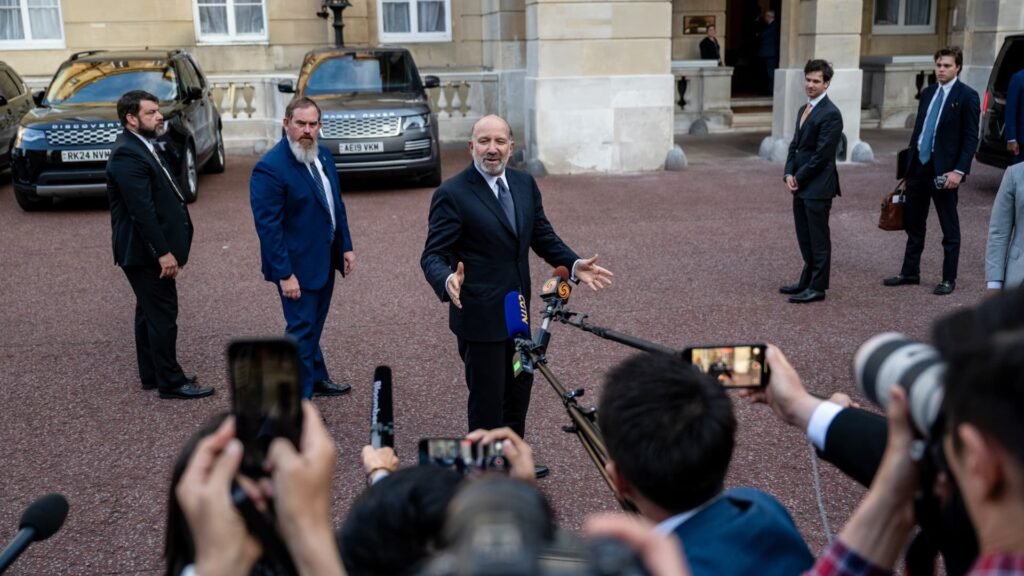U.S. Commerce Secretary Howard Lutnick talks to the press as he arrives for trade discussions at Lancaster House in London, UK, on Tuesday, June 10, 2025.
Bloomberg | Bloomberg | Getty Images
After two days of high-level discussions in London, the U.S. and China have reached a trade agreement, according to representatives from both nations. The deal now awaits approval from the leaders of both countries.
“We have established a framework to implement the Geneva consensus and the recent conversations between the two presidents,” U.S. Commerce Secretary Howard Lutnick informed reporters.
This statement was also echoed by Li Chenggang, China’s international trade representative and a vice minister in the Commerce Ministry.
Last week, U.S. President Donald Trump and Chinese President Xi Jinping had a phone call that helped stabilize a tense relationship, with both countries accusing each other of breaching the Geneva trade agreement. During a meeting in Switzerland in mid-May, the two largest economies in the world agreed to pause tariffs imposed in April for 90 days and also rollback some other measures.
Lutnick mentioned that he and U.S. Trade Representative Jamieson Greer would return to Washington, D.C., to ensure that President Trump endorses the outlined agreement. If Xi also approves, “we will proceed to implement the framework,” he stated.
The fact that both sides will update their leaders indicates “there are still some disagreements or unresolved details that need further discussion,” noted Jianwei Xu, a senior economist at Natixis. He added that while the framework agreement shows a commitment to de-escalate and continue dialogue, it remains uncertain whether it will lead to “specific agreements or substantial breakthroughs.”
Chinese limitations on rare-earth exports to the U.S. are an essential aspect of the recent agreement, and Lutnick stated that the U.S. expects this matter “will be settled as part of implementing the framework.”
He mentioned that recent U.S. restrictions on advanced technology sales to China would likely be eased once Beijing allows rare-earth exports.
Scott Kennedy, a senior adviser at the Center for Strategic and International Studies, remarked, “This deal is held together by the leverage both sides have over one another, rather than shared interests or common principles. The likelihood of further interruptions is quite high.”
While Chinese state media rushed to report Xi’s call with Trump, there was a noticeable delay before they commented on Lutnick’s remarks early Wednesday morning in Beijing.
State broadcaster CCTV eventually released a notice in the afternoon about the framework agreement reached in the bilateral trade talks. Previously, a less prominent state media report quoted Vice Commerce Minister Li stating that the discussions fostered bilateral trust.
On Tuesday, U.S. Treasury Secretary Scott Bessent informed reporters that he was returning to the U.S. to testify before Congress.
Chinese Vice Premier He Lifeng, the main negotiator for trade talks with the U.S., along with Chinese Minister of Commerce Wang Wentao, also participated in this week’s negotiations.
While the CSI 300 index in China was slightly up, U.S. stock futures fell as investors awaited more information on the trade framework.



